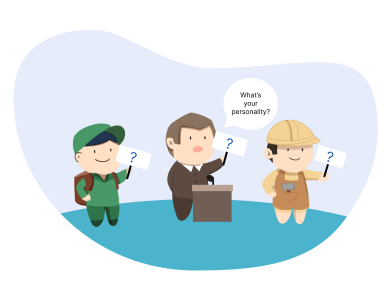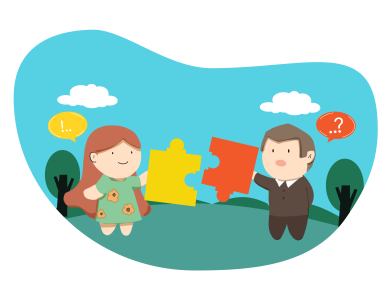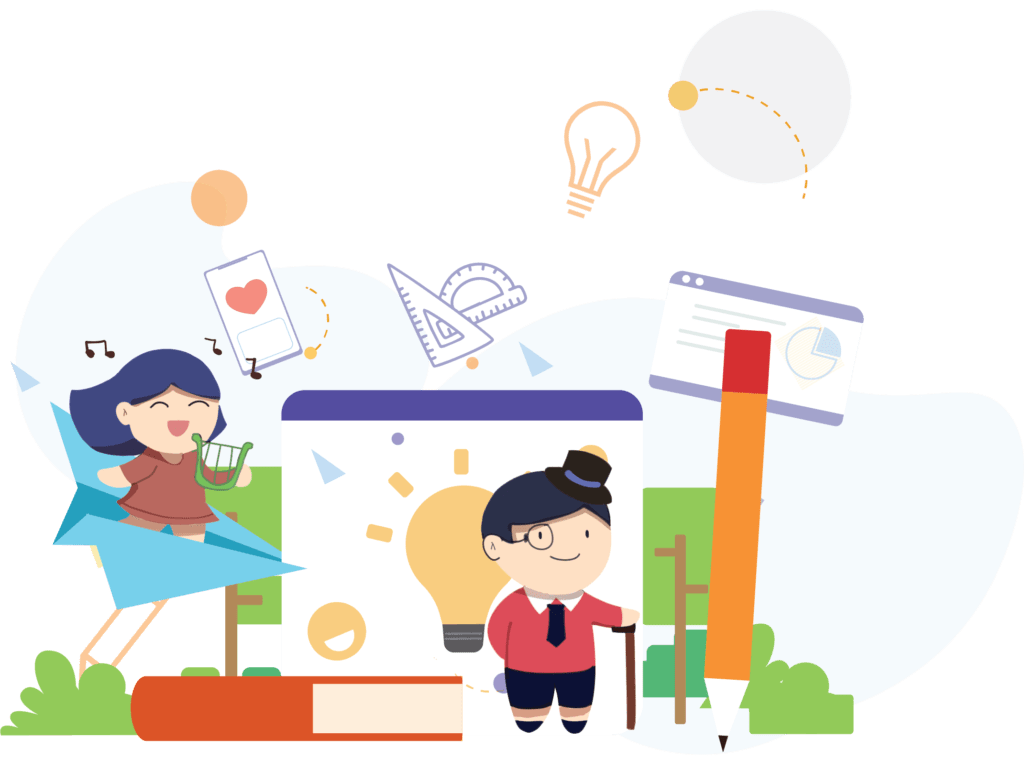
- GRIP Learning's Team
You may encourage your child to work on their own self-esteem and confidence by providing them with stimulating activities...
A positive outlook on oneself, one’s abilities, and one’s work can greatly impact one’s ability to achieve personal and professional success. Now, we’ll discuss the concepts of a “fixed” and “growth” mindset and offer some suggestions for making the transition.
Both a “fixed” and a “growth” mindset are ways of thinking about one’s talents, skills, and potential for improvement, and both are malleable over time. Each of these perspectives has the potential to significantly change one’s future. Carol Dweck’s original binary theory of “fixed mindsets” and “growth mindsets” has been useful to many in their understanding of this phenomenon. Here’s a detailed explanation of the differences between a fixed mindset and a growth mindset:
People with a growth mindset consider their abilities to be malleable and open to development through exposure to new situations and challenges. Individuals who hold this perspective tend to be open to new experiences and knowledge throughout their lives and believe in the power of self-improvement via focused effort. They can also push themselves outside of their comfort zone and work toward their goals instead of thinking that failure is a given.
For example, an individual with a growth mindset might think that while everyone is born with some natural talent, it is still possible to enhance one’s talents and intelligence with constant practice. This means that people with a growth mindset are more likely to try new things and embrace adversity head-on.
Furthermore, those who have a growth mindset understand that failure is a normal and necessary component of learning something new and improving a skill. They may also be more likely to learn from their mistakes and keep trying new things if they fail or get feedback that helps them improve.
People with a “growth mindset” tend to have a more positive view of their own potential, which can help them achieve great things when combined with diligence and drive. Individuals who have a growth mindset are more likely to be resilient in the face of adversity and always push themselves to improve their performance at work.
People with a fixed mindset consider their innate qualities, such as intelligence and creativity, to be unchangeable. Those who adopt this perspective typically believe that they were born with their strengths and weaknesses, and as a result, they make little effort to better themselves.
A person with a fixed mindset might, for instance, think that everyone has a set amount of innate talent and that, no matter how hard they try, they’ll never be able to increase that talent by deliberate action or practice. Those who have a “fixed mindset” are hesitant to try new things for fear of failure or embarrassment, even though those risks could pay off in the long run.
Furthermore, those with a fixed attitude may be more likely to judge their own achievements negatively by comparing them against those of others. People with a fixed mindset are more likely to have negative self-talk that keeps them from trying new things, makes them reject the opinions of others, and makes them give up when things get hard.
A growth mindset can help an employee who is struggling at work overcome the challenges created by a fixed mentality.

When comparing a growth mindset versus a fixed mindset, there are a few distinguishing characteristics that stand out. Some of these features are as follows:
People with a growth mindset consider it possible to improve and develop their existing skills through deliberate effort. Even when obstacles make it difficult to achieve goals, this can help people develop their skills. Rather than viewing setbacks as unbreakable barriers, those who adopt a growth mentality view them as opportunities to expand their horizons and develop their skills.
Individuals who have a growth mindset may view difficulties as opportunities. These people could look at difficulties and hurdles as educational challenges. Individuals with a growth mindset are more open to trying new things and making mistakes, hoping to eventually become better at them.
The confidence to take on challenging new endeavors derives from a growth attitude. Those who adopt this attitude may work harder to master a new ability while encountering setbacks and experiencing greater levels of frustration. They also think that mistakes are inevitable while picking up a new skill.
Those who adopt a “growth mindset” believe that they will find it easier to succeed in the face of adversity. This is because those with such a perspective tend to think of difficulties as merely temporary setbacks. People who think this way are more likely to keep going when things get hard and try to get better.
People who have adopted a growth mindset might use the achievements of others as motivation to work on their own personal development. Having a growth attitude can help people recognize the efforts of others and improve as team members.
A person with a growth mentality embraces criticism and actively seeks out the opinions of others. This is due to the fact that both positive and negative criticism can serve as a guide to improvement. They are open to criticism and even thank their critics for helping them get better.

A person with a fixed mindset tends to view intelligence as innate and therefore unchangeable. Someone with a fixed mindset would, for instance, think that their IQ stays the same no matter what. However, if one is committed to self-improvement, one may learn to view intelligence as something that can be developed and enhanced over time.
Individuals with a “fixed mindset” tend to avoid difficulties in their lives and careers. They could be hesitant to take on challenges because they worry about making mistakes or giving up too soon. This is because people with a fixed attitude are less likely to try new things, which might hinder their personal development. It is possible for those with a fixed mindset to learn and grow by courageously taking on new challenges.
When someone has a fixed mindset, they are less inclined to believe that they, or anybody else, can improve their skills through focused effort and practice. People with this outlook may give up easily when confronted with situations that make them feel inadequate.
Someone with a fixed mindset can give up on learning advanced mathematics after a few failed attempts because they believe they’ll never be able to improve their abilities. Working in the field could help these people hone their skills via practice and become more proficient in their chosen areas.
Someone with a fixed mindset might constantly judge themselves in relation to others. As a result, it’s easy to feel discouraged, especially if one sees others thriving around them. When evaluating the achievements of others, those with this viewpoint may feel jealous or overwhelmed. By changing their perspective, people may be able to find inspiration and happiness in the achievements of others.
Some people with a fixed perspective may ignore constructive feedback, although it is a key component of professional and personal development. They could even see criticism as a personal attack. It may also be difficult for them to take the necessary steps forward by employing constructive criticism. If these people can learn to place a high value on criticism, they may advance in their careers and personal endeavors.
The ability to overcome difficulties and setbacks increases when one adopts a growth mindset rather than a fixed one. Some suggestions for nurturing a growth perspective:




